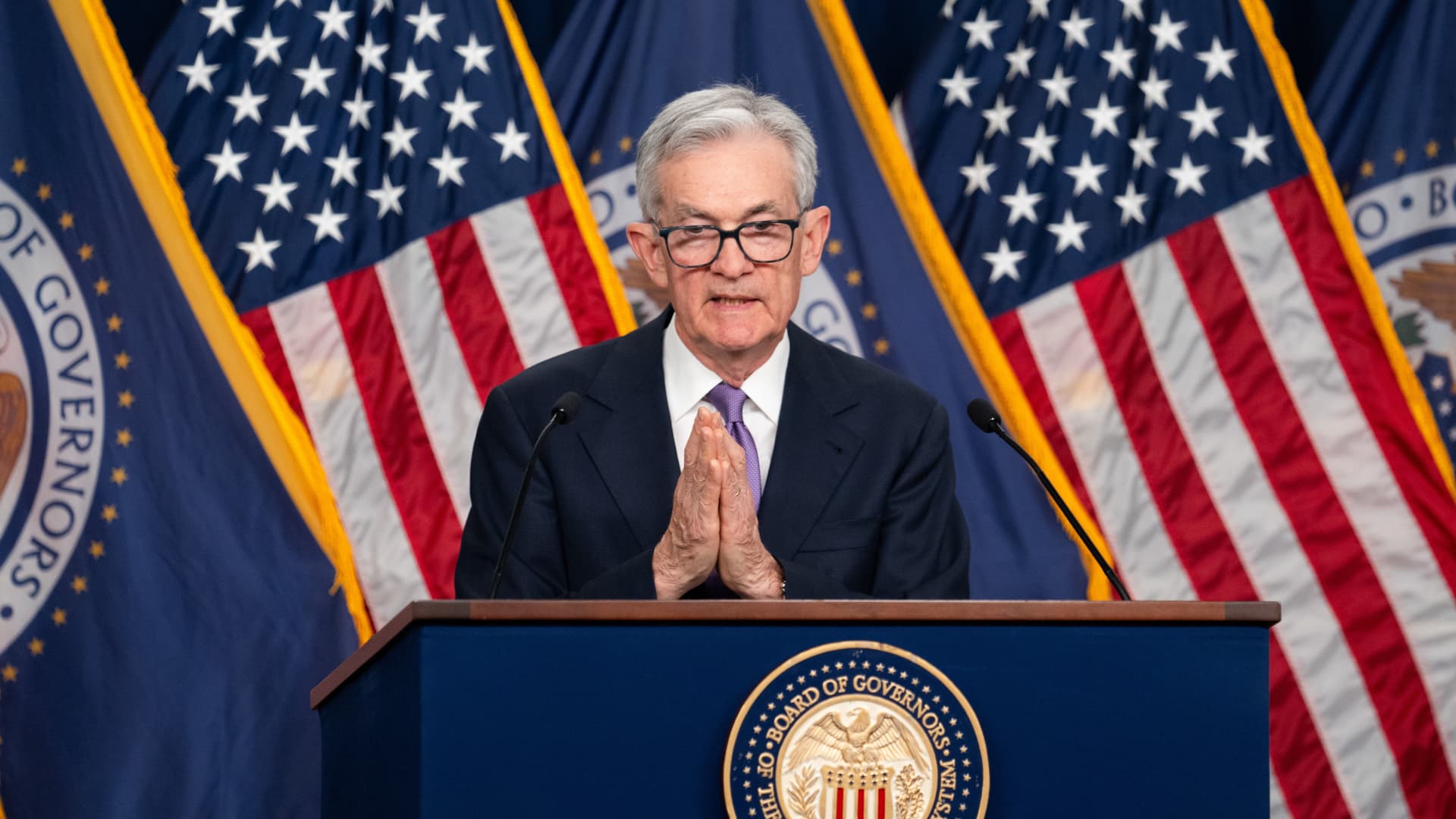Competence, corruption and control all impose limits on the ability of any administration to achieve its agenda and impose its will.
Even in an authoritarian era, the competence of specific aspiring authoritarians matters greatly.
As does their degree of corruption, even in a completely corrupted era.
And lastly, the ability of specific administrators to impose authoritarian measures requires that they achieve control of existing institutions or to build new ones.
Post-Constitional Order?
This is even true in a post-Constitutional order period, such as the United States in the fall of 2025.
I struck out the word “order” because while I agree with Thomas Neuburger that we are in a post-Constitutional state, I do not believe the Trump administration, or the various corporate factions supporting him, have so far succeeded in imposing a new order.
Some elements in the administration (Stephen Miller) are clearly attempting to however, and their ambitions are authoritarian.
For this post I intend to focus on the legal and political aspects of the situation.
Some readers may argue that the judicial branch of the American government has become so politicized that it no longer has non-political authority.
I agree, but the judicial news is relegated to a parallel media ecosystem so the distinction between legal and political is still a useful one when monitoring the news.
What’s Competence, Dude?
Let’s focus on hapless FBI director Kash Patel to start.
The man is no J. Edgar Hoover with a nation-wide law enforcement apparatus under his absolute control.
This CNN piece headlined “‘It’s unacceptable’: Inside growing concerns about Patel’s FBI leadership” is fat on leaks from inside the FBI and portrays Patel as an utter incompetent:
It was just hours after Kirk was shot at a Utah university that Patel made his most significant misstep of the investigation. In a social media post, the FBI director said the bureau had a “subject for the horrific shooting” in custody.
But the post on X came just minutes before officials in Utah stood in front of cameras at a press conference and announced the shooter was still at large.
The FBI was, in fact, questioning someone in relation to the shooting, and state and federal officials at the press conference scrambled to course correct to be in line with Patel. Still, soon after the conference was over, Patel backtracked by posting that the subject had been released.
Leaders at the Justice Department saw the posts as embarrassing, privately criticizing Patel for using social media to prematurely announce that investigators had made a breakthrough only to walk it back less than two hours later, two sources familiar with the matter told CNN.
Similarly, Stephen Miller’s ICE raid on two South Korean-owned facilities in Georgia isn’t winning medals for execution, although it was ambitious indeed.
Per the New York Times:
Almost 500 people were detained during a raid of a Georgia battery plant owned by two South Korean manufacturers last week, the largest immigration enforcement operation at one location in the history of the Department of Homeland Security.
But in at least one instance, officials admitted a worker was employed legally and forced him to leave the country anyway,…
The fallout from the operation at the plant was the latest example of the dragnet-like nature of Mr. Trump’s immigration policy and how it can conflict with other stated policy objectives, such as bolstering production in the United States.…ICE planning documents suggest that agents were not necessarily targeting temporary South Korean workers last week.
The original warrant for the raid listed only four Hispanic individuals. According to Mr. Kuck, agents did not have any Korean speakers on hand during the raid and had to use apps to translate.
“It was an accident” that ICE picked up the South Korean workers, Mr. Kuck argued. “They just transported everybody to the jail to sort it out later.”
Regional MAGA leader, Texas Attorney General (and candidate for US Senate) Ken Paxton faces similar hurdles of his own making, via The Texas Tribune:
Texas Attorney General Ken Paxton filed an explosive lawsuit, accusing Beto O’Rourke of bribery, fraud and campaign finance violations for supporting Texas Democrats who left the state to protest new GOP congressional maps.
Six weeks, four courts, two counties, dueling rulings and hundreds of thousands of dollars in legal expenses later, Paxton’s case against the former El Paso congressman seems on the brink of collapse.
Last week, the all-Republican 15th Court of Appeals undid the temporary restraining order that prevented O’Rourke and his organization from fundraising and distributing donations, ruling it an unconstitutional violation of free speech protections.
“[T]he question today is not whether such activities can be punished after the fact … but whether they can be prohibited before they occur based on a suspicion that they might,” the justices wrote in their unanimous ruling. “At this stage, where little evidence has been offered, the latter would constitute an unconstitutional prior restraint of political activity that may or may not prove to be lawful.”
The court still has to rule on the rest of the appeal, but in Friday’s opinion, they cast doubt on some of Paxton’s central arguments. Paxton condemned the ruling as a constitutional crisis, slamming the court’s “activist judges,” along with the all-GOP Texas Supreme Court for declining to step in.
Choking on Corruption
Yves Smith’s repost of and commentary on Brad Smith of CommonDreams’ “‘Incredible Corruption’: Blockbuster Report on Trump Crypto Grift Leaves Observers Stunned” covered Trump’s massive crypto scam earlier this week, but this rotten POS stunt deserves repeated and expanded coverage.
Some members of Trump’s administration may be working very hard to impose an authoritarian agenda, but POTUS seems to be very focused on the main chance.
From the NY Times’ “Anatomy of Two Giant Deals: The U.A.E. Got Chips.The Trump Team Got Crypto Riches.”
This summer, Steve Witkoff, President Trump’s Middle East envoy, paid a visit to the coast of Sardinia, a stretch of the Mediterranean Sea crowded with super yachts.
On one of those extravagant vessels, Mr. Witkoff sat down with a member of the ultrarich ruling family of the United Arab Emirates. He was meeting Sheikh Tahnoon bin Zayed Al Nahyan, a trim figure in dark glasses who controls $1.5 trillion of the Emiratis’ sovereign wealth.
It was the latest engagement in a consequential alliance.
Over the past few months, Mr. Witkoff and Sheikh Tahnoon had become both diplomatic allies and business partners, testing the limits of ethics rules while enriching the president, his family and his inner circle…At the heart of their relationship are two multibillion-dollar deals. One involved a crypto company founded by the Witkoff and the Trump families that benefited both financially. The other involved a sale of valuable computer chips that benefited the Emirates economically.
While there is no evidence that one deal was explicitly offered in return for the other, the confluence of the two agreements is itself extraordinary. Taken together, they blurred the lines between personal and government business and raised questions about whether U.S. interests were served.
Robert Reich expanded on Trump’s crypto empire:
This is just the tip of the iceberg of Trump’s crypto corruption.
To understand the full extent of it, you need to go back to four days before early voting started in 2024. That’s when Trump and his sons launched the crypto firm, World Liberty Financial.
As soon as Trump won, money started pouring in.
Then, just days before returning to office, Trump launched a separate crypto scheme, selling TRUMP and MELANIA memecoins. Memecoins are a type of cryptocurrency based on an image or online joke.
Within his first six weeks in office, Trump called for a “Crypto Strategic Reserve”— a government backed stockpile of crypto assets, sort of like our oil reserve, but completely pointless. That announcement made crypto prices soar.
So far, the Trump family has made about $3 billion from crypto — with many purchases by foreign buyers. Forbes now estimates that over half of Trump’s entire net worth is crypto-based.
With Trump acting as both the president of the United States and as his own crypto brand ambassador, it’s hard to tell which job he’s doing at any given moment.
I’m not sure which Trump is in charge, ambitious aspiring dictator hell-bent on forging a lasting order out of chaos, or penny-ante grifter who’s stumbled into the score of his lifetime.
Maybe this video from last weekend’s Yankees game can help readers reach their own conclusions.
DJT-YMCA | BRONX, NYC🕺 pic.twitter.com/qCnCnpeBT3
— Dan Scavino (@Scavino47) September 12, 2025
Political Control of Courts?
The judicial branch of the U.S. government has become so flagrantly corrupt and openly partisan that it can no longer send legal signals that subtly guide lower court decisions.
The U.S. Supreme Court has resorted to novel methods of expediting Trump’s agenda. This piece from The Federalist is quite revealing, despite their intention to support the court and blame the issue on “rogue judges”:
No NFL team in the last 50 years has had a perfect season, but this is Trump’s record in the U.S. Supreme Court: 18-0. His splendid solicitor general, John Sauer, has racked up 18 wins this year by staying lower court decisions against Trump and thereby allowing the president to exercise the full “executive power” granted by Article II of the Constitution.
These victories have been on emergency applications to the Supreme Court, where it is difficult to obtain the justices’ attention and even more challenging to prevail. Also called the “shadow docket,” these wins by Trump have come quickly, without oral argument, often by a 6-3 or greater margin.
Seven of these wins have been on deporting illegal aliens, five on firing unnecessary federal workers, four on terminating wasteful federal spending, one on ending transgender personnel in the military, and one on stopping the epidemic of nationwide injunctions by district court judges.
On Monday, Chief Justice John Roberts granted a stay to Trump, as requested by Sauer, of a D.C. Circuit ruling that had blocked Trump from removing a commissioner of the Federal Trade Commission. Despite being on the court’s traditional summer vacation until it returns later this month, Roberts granted Trump’s request on the second business day after it was filed.
Supreme Court Justices Neil Gorsuch and Brett Kavanaugh slapped around lower court justices in a recent ruling, per CNN:
“Lower court judges may sometimes disagree with this court’s decisions, but they are never free to defy them,” Justice Neil Gorsuch admonished in an opinion last week tied to the court’s decision to allow Trump to cancel nearly $800 million in research grants.
The rebuke, which was joined by Justice Brett Kavanaugh, flipped the narrative that it is Trump who has pushed legal boundaries with his flurry of executive orders and support for impeaching judges who rule against him. A wave of legal conservatives took to social media to tout Gorsuch’s warning.
“This is now the third time in a matter of weeks this court has had to intercede in a case ‘squarely controlled’ by one of its precedents,” wrote Gorsuch, who was Trump’s first nominee to the high court. (Kavanaugh was Trump’s second.) “When this court issues a decision, it constitutes a precedent that commands respect in lower courts.”
Other conservatives have been just as harsh this year. Justice Samuel Alito in March accused a federal judge in another case involving a Trump policy as committing an “act of judicial hubris” and “self-aggrandizement of its jurisdiction.”
The Supreme Court has been consistently siding with Trump on the emergency docket for months, including in high-profile cases dealing with immigration, spending and the leadership of independent agencies. And Trump has won even in cases in which there are serious arguments that his administration defied a lower court, said Steve Vladeck, CNN Supreme Court analyst and professor at Georgetown University Law Center.
“Gorsuch’s opinion in the NIH funding case is perhaps the most direct articulation yet of why — because the justices seem more concerned with lower courts correctly reading the tea leaves in their (often unexplained) rulings than with the executive branch behaving properly before the rest of the federal judiciary,” Vladeck said
Two Federalist Society members opined at the Wall Street Journal about “The Judicial Insubordination Crisis”:
some lower-court judges have become brazenly defiant, not only of the administration’s agenda but also of high court opinions. In response, the justices have had to remind lower courts of their constitutional role and chastise them for resisting court precedent. But the resistance continues, threatening to erode the judiciary’s ability to function.
…To be sure, it isn’t always easy to apply the high court’s precedent, especially when it entails open-ended balancing tests, flexible doctrines and conflicting directives within opinions and with older rulings. In Students for Fair Admissions v. Harvard (2023), to take a recent example, the justices held that race-based college admissions programs violate the Equal Protection Clause—but that colleges can consider “an applicant’s discussion of how race affected his or her life.” That concession invites colleges to continue considering race, spawning more ambiguity and litigation.
Compounding the problem of ambiguous precedent, some district judges have issued vague and sweeping decisions that grant injunctive relief to stop the executive branch from acting. These decisions, in turn, force the Supreme Court to issue emergency orders more frequently. Such orders are handed down quickly, without full briefing or argument. Lower courts then lament that the orders are unclear, which results in flawed rulings that lead to more emergency orders from the justices. So far this year, the high court has issued 20 emergency orders, revealing a significant disconnect between the justices and some lower-court judges.
SCOTUSBlog has a different take in “The Supreme Court fails to apply its own precedent and continues to sow confusion through its shadow docket“:
…one reason the Supreme Court is issuing so many shadow docket rulings without explanations is that the justices cannot themselves agree on the reasons for the orders. I also argued that such disagreement by itself counsels against granting emergency relief.
…the court’s opinion in Trump v. CASA suggested that it was applying a new, unique, and unjustified standard for evaluating when the government is experiencing irreparable harm, …a majority of the court may think that the government necessarily suffers irreparable harm when a lower court enjoins the government from doing something it wants to do.
The court’s Aug. 21 order pausing a district court injunction related to National Institutes of Health grants provides evidence for all of these claims…In National Institutes of Health v. American Public Health Association, … Judge William Young, a Reagan appointee, stated: “I have never seen a record where racial discrimination was so palpable … I’ve sat on this bench now for 40 years, and I’ve never seen government racial discrimination like this.” Young also called out “discrimination against America’s LGBTQ community” inherent in the grant terminations. Ultimately, Young issued a preliminary injunction barring the government from suspending the grants.
But the Supreme Court addressed none of that. Instead, in an opaque order and a series of fractured opinions, it granted the Trump administration’s request to stay the district court ruling requiring the grant payments to be made. …even more confusing is the voting line-up and accompanying opinions.
The court split 5-4 on both of parts of its order, with only one justice – Justice Amy Coney Barrett – in the majority in both. …
Altogether, there were a total of five opinions in addition to the order itself, with no opinion joined by more than four justices. And two justices – Justices Clarence Thomas and Samuel Alito – provided no explanation for their votes.…Nor does National Institutes of Health itself give clear guidance to lower courts. …
… Marks v. United States, long the primary guidance on interpreting fragmented merits rulings – and long criticized for its unworkability. Applying Marks to the minimalistic explanations in a case like National Institutes of Health, much less determining how the case implicates different facts and legal arguments in subsequent litigation, is, at best, like putting together a puzzle with half the pieces missing – and then possibly being called defiant and anarchic for not producing a complete picture.
Steve Vladeck responds to Gorsuch’s attack on lower courts:
the real headline among the five separate opinions filed by the justices on Thursday was the opinion “concurring in part and dissenting in part” filed by Justice Gorsuch, and joined in full by Justice Kavanaugh. In it, Gorsuch accused the lower courts in this case—and in two other cases—of open defiance of earlier rulings by the Supreme Court on emergency applications. More than that, Gorsuch claimed that the Court’s interventions in many of the Trump cases would be “unnecessary” but for bad behavior by lower courts.……Gorsuch’s argument is not just specious; it is affirmatively dangerous—coming at a time when an increasingly popular claim by the President and his supporters is that any lower court ruling adverse to the administration is illegitimate. It would be one thing if Gorsuch had incontrovertible evidence of lower-court defiance. But as I show below the fold, the opposite is true. Instead, the real culprit here is the Supreme Court’s own majority, which continues to hand down thinly (or entirely un-)explained rulings in these cases and expect lower-court judges to read their minds in the face of entirely reasonable arguments for distinguishing the earlier rulings.
LawDork Chris Geidner also has a take in his piece “Trump’s SCOTUS appointees each shared alarming views in allowing NIH grant cuts”:
President Donald Trump’s three appointees to the U.S. Supreme Court each made alarming statements in a single case about federal health research grants last week, particularly when viewed in light of the broader attack on the rule of law in America.
Taken together, their statements in an order on the shadow docket on a Thursday afternoon in August show how understanding the Supreme Court is going to be — and must be — a fundamentally different undertaking from learning law for the near-term future.
That has certainly been illustrated repeatedly over the nearly five years since Justice Amy Coney Barrett took her seat on the bench. But, the August 21 order in a pair of cases challenging the legality of National Institutes of Health guidance that led to the cancellation of research grants across the nation — an order that hinged on Barrett’s vote — really nailed down just how Trump’s appointees are backing the Trump administration in its attacks on the rule of law.
Former Supreme Court Justice Stephen G. Breyer defended the lower court judge:
Justice Stephen G. Breyer on Saturday defended a judge accused of defying a Supreme Court ruling, saying in an interview that he knew the judge to be scrupulously honest and respectful of higher courts.Justice Breyer, who retired from the court in 2022, has avoided criticism of his former colleagues. He declined on Saturday to directly address Justice Neil M. Gorsuch’s concurring opinion last month accusing Judge William G. Young, of the Federal District Court in Boston, of ignoring a binding precedent.
But that opinion plainly prompted Justice Breyer’s decision to step forward with rare public comments in praise of Judge Young as model jurist whose rulings he had often reviewed during his 14 years as an appeals court judge in Boston.
“I never saw an instance where he would deliberately defy a controlling opinion or legal statement from our court or from the Supreme Court,” Justice Breyer said. “I never even had an instinct or a guess or a hunch or anything that he was doing anything like that deliberately.”
Justice Breyer’s comments were the latest indication of growing tensions within the judiciary, as courts grapple with the flood of lawsuits prompted by the Trump administration’s sweeping efforts to remake the government, and as trial judges struggle to interpret the Supreme Court’s emergency orders.
For his part, Judge William G. Young apologized and attempted to fall on his sword:
…the judge at whom the directive was aimed issued an apology from the bench, pledging to adjust to meet the highest court’s demands.
The acknowledgment on Tuesday by Judge William G. Young in Federal District Court in Massachusetts highlighted the precarious position that lower courts have landed in this year as they struggle to make sense of a growing number of unsigned orders the Supreme Court has produced through the court’s emergency docket.
Judge Young said on Tuesday that he had not realized he was expected to rely on a slim three-page order issued with minimal legal reasoning in April to his case dealing with a different agency.
“Before we do anything, I really feel it’s incumbent upon me to — on the record here — to apologize to Justices Gorsuch and Kavanaugh if they think that anything this court has done has been done in defiance of a precedential action of the Supreme Court of the United States,” said Judge Young, who was appointed to the bench by President Ronald Reagan in 1985.
“I can do nothing more than to say as honestly as I can: I certainly did not so intend, and that is foreign in every respect to the nature of how I have conducted myself as a judicial officer,” he added.
A big part of successfully replacing our now-dead Constitutional order will be finding a means to clearly communicate instructions to underlings.
Trump’s Supreme Court may have succeeded in throwing out precedent and law in their rulings for Trump, but they are struggling to convey a method by which lower courts can accurately predict how they are supposed to rule.
Perhaps these struggles explain some of Trump’s recent testiness with the press, via the (possibly wishful thinking) New Republic:
President Trump seems even more angry at the media than usual. His lawyers just filed a lawsuit against The New York Times that First Amendment lawyers are dismissing as a total joke. The suit, however, is also chock full of angry rants that appeared dictated by Trump himself. And he announced it with a Truth Social tirade that boiled with fury. Meanwhile, Trump himself snapped directly at reporters in strange ways, hitting one with a bizarre threat and engaging in a bizarre dominance display over the other. This comes as a new poll from The Economist reveals shockingly low support for Trump among independents, a key metric for gauging political strength—or weakness.
It’s one thing to tip over a rotten old order, it’s a much bigger challenge to impose a new order.
Here’s hoping that Trump is the American Marius and not the American Sulla, much less the American Julius Caesar or Augustus.




























